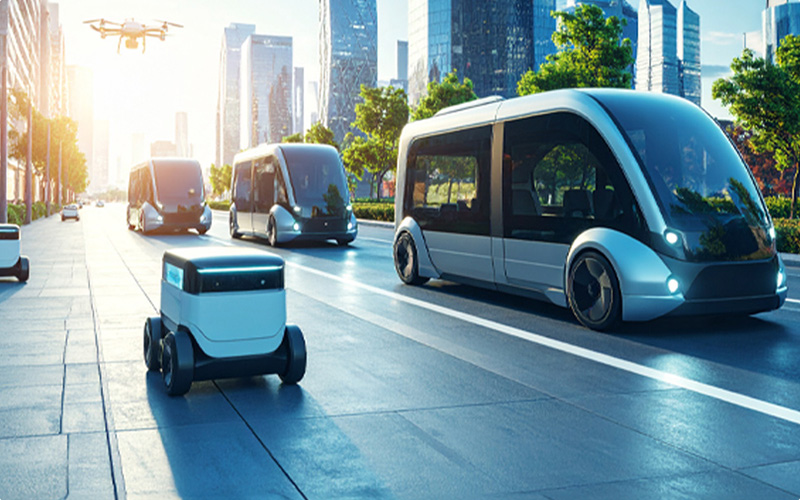A Society Independent from Population Growth
Building a System Unaffected by Population Dynamics

In some countries, the decline in the labor force is making it increasingly difficult to maintain social structures. What kind of society can continue to develop without being dependent solely on the working-age population?
Deep Tech Addressing global challenges
-
Robotics
Robots are evolving to perceive their surroundings through sensors and make autonomous decisions using AI. In factories, they can now identify parts of varying shapes and positions, and handle continuous operations, from picking and transporting to assembly. On construction sites, robots autonomously perform tasks such as surveying and material transport, contributing to greater sophistication and efficiency in operations. These advancements are enabling the replacement of processes that previously relied on manual labor, allowing people to focus on higher-value-added work. Robotics is becoming a core technology that supports a society less dependent on population size.
-
Smart logistics
Smart logistics refers to initiatives that optimize the entire supply chain using AI and robotics. In warehouses, autonomous mobile robots are increasingly handling sorting and packing, advancing the automation of internal operations. For delivery, drones are being tested for small parcel shipments, and autonomous delivery vehicles are being piloted to efficiently serve multiple destinations. In large-scale transport, the adoption of self-driving trucks is also progressing. These technologies not only address labor shortages and improve transportation efficiency but also support the transition to a sustainable logistics system.
-
Autonomous driving
Autonomous driving is a technology that enables vehicles to perceive their surroundings using sensors and AI and to control their own movement without human intervention. In some cities, autonomous taxis are already on the road, bringing real-world deployment closer than ever. This progress is driven by several key innovations: the mass production of high-precision sensors such as LiDAR and 4D radar, the evolution of integrated software powered by transformer-based AI, and the increased processing capabilities of advanced SoCs. Thanks to these advancements, autonomous vehicles can now handle challenging conditions, such as nighttime and rainy weather more effectively, and their use is expanding across urban transportation, long-distance travel, and last-mile delivery. As society faces a shrinking population, autonomous mobility and logistics are becoming an essential foundation for the future.
-
Digital Transformation
Digital Transformation (DX) refers to the process of reinventing business operations and services using digital technologies. In manufacturing, Digital twins are used to virtually recreate entire factories, allowing potential issues to be identified and production planning to be optimized even before construction begins. In office environments, the combination of generative AI and Robotic Process Automation (RPA) enables the automatic handling of complex approval workflows and customer inquiries. This allows our team focus on creative tasks, making it possible to scale operations efficiently with fewer people. DX is becoming a vital foundation for a sustainable economy and daily life, especially as society faces population decline.
